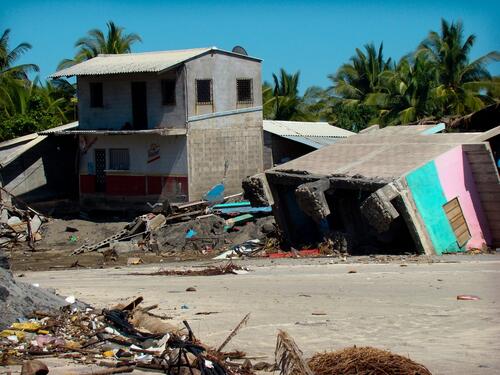Over 150 people were killed and more than 13,000 were displaced by the intense rains and floods which hit El Salvador after Hurricane Ida swept through the country a week ago. The authorities declared a state of emergency in the regions affected and many communities were isolated for days because of the collapse of bridges.
Médecins Sans Frontières (MSF) has sent a team of nine staff, including doctors, logisticians, a nurse, a water and sanitation expert, and a psychologist to help the victims of this natural disaster. The MSF Emergency Unit based in Panama has sent a planeload of medical and relief material, including water purification equipment and 15 days worth of medicines, surgical materials, and first aid kits. MSF teams have been assessing the needs of the people in the two most affected regions, La Paz and San Vicente.
People tell me how they were stuck in their homes, how the water was rising and rising and they couldn’t escape.Xavi Punset, MSF medical coordinator.
MSF psychologists have done some counselling in the shelters and have seen how, despite the sadness people experienced after losing everything, the civil society reacted quickly and immediately set up shelters for those who had been affected.
The first assessments indicate that the medical needs are covered by the government authorities and national non-governmental organisations and the shelters are in good condition.
The MSF teams will be working in the region of La Paz, on the outskirts of Zacatecoluca and La Libertad, concentrating on the distribution of non-food items and giving psychological support to the victims. MSF will continue assessing the needs in the more remote parts of the region of San Vicente and will look into setting up a psychosocial programme for those who have lost their homes.



